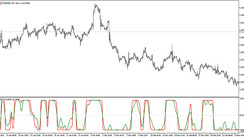The chiefs of the IMF and the World Bank warned of a growing threat of a global recession as affluent economies sluggishly grow and greater inflation drives the Federal Reserve to maintain hiking interest rates, increasing the burden of debt on poor countries.
The US, which has the greatest economies in the world, still has a very strong labor market, but it is slowing down as the effects of increasing borrowing prices are "beginning to bite." Due to Covid-19 interruptions and housing market volatility, China is also slowing down as natural gas prices rise. The eurozone is also slowing down. According to IMF estimates, the global economy will fall by approximately one-third this year and the following year for at least two successive quarters, costing $4 trillion in lost output through 2026.
Authorities must prevent inflation from becoming an unstoppable train at the same time. Additionally, financial assistance should be carefully targeted to avoid fueling inflation, as developing economies are particularly hard-hit by tightening financial circumstances. The globe needs assistance in emerging. According to him, the dominance of the dollar is making developing countries' currencies weaker and pushing up their debt levels to "burden" levels.
At a later event, IMF stated that they believe that middle- and low-income nations' ability to fund their balance of payments falls short by $9 billion. These requirements will be met in part by the "food crisis window" of emergency funding that the IMF established last month, according to her. The IMF further believes that the most recent IMF board debate on upgrading the fund's assets to give economies a stronger voice has given them hope. The IMF says that the procedure, expected to be finished by Dec 2023, is crucial for upholding the fund's reputation.
In addition, the IMF will talk about surcharges during discussions about its precautionary measures in Dec. Surcharges are commissions assessed to nations that frequently utilize the lender's credit lines. Surcharges encourage middle-income countries to refrain from taking on excessive amounts of debt. Some developing countries including Nobel laureate Joseph Stiglitz have protested against them, claiming they impose an unfair burden on impoverished nations.
Due to the rising dollar, currencies are now again in the spotlight, replacing quite popular cryptocurrencies.





